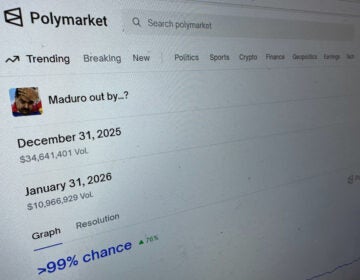Companies increasingly move to disclose campaign spending, report finds
More large corporations are disclosing their political activity to shareholders and the public — voluntarily.
Shareholder pressure and increased scrutiny of corporate spending since the Citizens United ruling of 2010 has contributed to greater transparency, according to Bruce Freed of the Center for Public Accountability.
The center has tracked corporate spending disclosures for the past three years, in partnership with Wharton’s Zicklin Center for Business Ethics Research.
“Companies are becoming more transparent because of their recognition that disclosure is in their interest and a good governance practice,” says Freed.
In a new report, the partners share findings that 78 percent of the companies reviewed for two consecutive years improved their policies of transparency.
Of those, a quarter disclosed their donations to political nonprofits, which are exempt from many reporting requirements.
“Companies are viewing disclosure and accountability as a mainstream corporate practice,” adds Freed. He also credits companies’ ambitions to appear model corporate citizens, as well as the need to get out in front of news about politically sensitive donations.
Companies that come in for high praise in the report for their disclosure of political spending include UPS, Aflac, Microsoft, Conoco Phillips, Exelon, and Time-Warner.
Since the U.S. Supreme Court ruling on Citizens United approved corporations’ unlimited independent expenditures in support of political candidates, that difficult-to-trace political spending has skyrocketed.
John Dunbar, a campaign finance expert at the Center for Public Integrity in Washington, said some recipients of this corporate spending would prefer to keep information about their donors private, specifically citing the U.S. Chamber of Commerce.
“They hate this,” notes Dunbar. “There is a bill that has failed repeatedly in the House, in the Capitol, that would require more disclosure of spending and giving of nonprofits like the chamber and they lobbied against it,” Dunbar said, referring to the DISCLOSE Act. “They were probably the lead force to keep that bill from passing.”
The Chamber did not respond to WHYY’s request for an interview. In a 2010 statement, the organization called the legislation “an unconstitutional attempt to silence free speech.”
WHYY is your source for fact-based, in-depth journalism and information. As a nonprofit organization, we rely on financial support from readers like you. Please give today.




